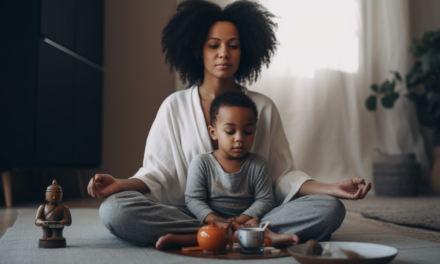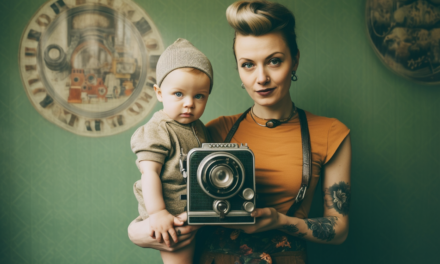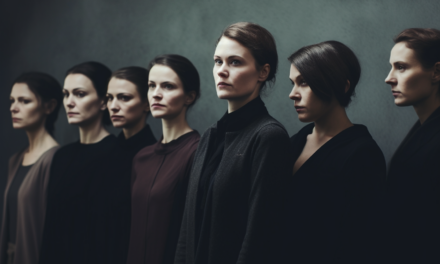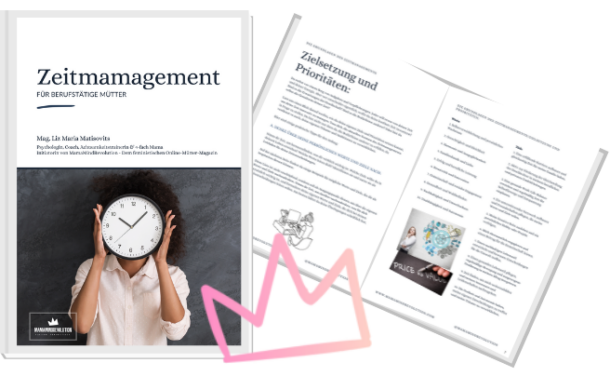As a modern feminist, one often wonders whether motherhood is compatible with a feminist approach and whether it is possible to see motherhood as something positive. In many feminist debates, motherhood is seen as a disruptive factor that prevents women from pursuing their own goals and ambitions. But is this the only perspective? Can motherhood really be enjoyed as a feminist woman? In this article I would like to engage in a discourse on motherhood based on a positive and feminist image of motherhood.
Introduction: Motherhood and Feminism in the Field of Tension
A common aspect of the discussion of motherhood in feminism is the view of motherhood as a disruptive factor. It is argued that motherhood forces women into traditional roles and distracts them from their career goals. Indeed, motherhood is often associated with certain expectations and restrictions in our society. However, we should ask ourselves whether these expectations and restrictions are necessarily linked to motherhood itself, or whether they are rather the result of a patriarchal social structure that forces women into certain role patterns.
Viewing motherhood as a disruptive factor neglects the fact that motherhood also holds potential for personal growth, self-fulfilment and emancipation. A positive, feminist image of motherhood recognises that motherhood is an individual choice and that women should have the freedom to live their motherhood in their own way. Such an image of motherhood frees women from the pressure to conform to certain norms and allows them to explore and realise their own needs and desires.
A feminist concept of motherhood that understands becoming and being a mother as at least potentially emancipatory life choices and practices has already been addressed by the feminist writer and philosopher Paula-Irene Villafernández Reusch. In her 2018 work, she stresses the importance of such a concept, which empowers women and enables them to shape their motherhood in their own way.
The pleasures of motherhood: sensual bodily experiences and self-determination
Such a feminist image of motherhood could encourage women to include the pleasurable aspects of motherhood in addition to the physical level. The inclusion of the bodily level of experience is very important when it comes to motherhood. Pregnancy, childbirth and the practice of motherhood are bodily experiences that are closely connected to our sensual experience of the body. However, in our culture today we are often alienated from our vital, bodily affective sources as we become more and more oriented towards the prevailing ideas of what women should be and what motherhood should be like.
It is important that women have the opportunity to feel and acknowledge their own physical experiences in relation to motherhood. By engaging with our body awareness, intuition and sensory perception, we can build a deeper connection with ourselves and our child. Feeling and allowing our own sensual bodily experiences also enables us to better understand and respond to our own needs and limits.
However, it is important to note that feeling and allowing one's own sensual bodily experiences does not necessarily mean that every woman has to have the same experiences or practice the same mothering practices. Each woman has her own unique physical experience and it is important that we support women in their diversity and individuality.
Similarly, a feminist view of motherhood does not mean that all women must become mothers or that motherhood is the only desirable life choice. Every woman has the right to make her own choices in this regard. However, a feminist image of motherhood opens up the possibility for women to explore and realise their individual needs and desires, independent of societal expectations and norms, including those expected of feminist women.
By viewing motherhood as a potentially emancipatory life choice and encouraging women to experience motherhood as pleasurable and to embrace their bodily experiences, a positive, feminist discourse on motherhood can be promoted. A feminist image of motherhood opens up the possibility for women to explore and realise their own needs and desires independently of societal expectations and norms. By supporting women in their diversity and individuality, we can create a society that values and respects women's different life plans.
Sharing the burden of motherhood: Society's role in supporting mothers
At this point, however, I would like to go one step further. Respecting different life plans can only be one step. Another important step is to recognise that the burden of motherhood should not rest solely on the shoulders of the individual woman. Rather, it is the responsibility of society to share this burden, as it also benefits from motherhood and should strive for a just society for all.
Motherhood is a fundamental part of the social fabric and continuity of a society. By raising children, women contribute to the reproduction of society and invest their time, energy and resources in the next generation. This valuable role of motherhood should not be left to women alone, but should be recognised and supported by society as a whole.
A just society should provide mechanisms that enable women to reconcile motherhood with their other lives. These include family-friendly working conditions, flexible working hours, quality and affordable childcare and a fair sharing of parental responsibilities between men and women. It is also important that care work is seen as a socially valuable activity that should be fairly rewarded and respected. This means that we as a society must take the necessary measures to ensure adequate remuneration and social security for those who provide care, whether in the family or at work.
It is in the interests of society as a whole to promote and support motherhood. By enabling women to reach their full potential and to reconcile motherhood with other aspects of their lives, we create a society of equal opportunity and justice for all.
It is important that we as a society take responsibility and share the burden of motherhood. By supporting and easing the burden of motherhood on women, we enable them to pursue their own goals and ambitions while experiencing a fulfilling motherhood. A just society should see motherhood not as an obstacle but as valuable and indispensable work that benefits everyone.
Personal conclusion
As a mother of 4, there are some aspects of motherhood that bother me. However, most of these challenges are structural and societal. Nevertheless, I find the pure experience of motherhood, including pregnancy and birth, extremely empowering and transcendent in a surprisingly positive way. At the same time, working for a just society is very important to me.
As a mother of 4, there are some aspects of motherhood that bother me. However, most of these challenges are structural and societal. Nevertheless, I find the pure experience of motherhood, including pregnancy and birth, extremely empowering and transcendent in a surprisingly positive way. At the same time, working for a just society is very important to me.
The discussion of motherhood in feminism should provide space for different perspectives and encourage women to shape their motherhood in their own way. It is important to address the structural barriers that prevent women from living their motherhood in a free and self-determined way. At the same time, we must not overlook or devalue the positive and liberating aspects of motherhood.
As a mother and a feminist, I am concerned that motherhood be recognised as an individual, powerful and potentially emancipatory life choice. We should embrace the bodily level of motherhood and empower women to embrace their sensual experiences of pregnancy, birth and the practice of motherhood. At the same time, we as a society need to increase our commitment to paid care work and promote its appreciation and recognition.
We must work together to create a society in which motherhood is not seen as an obstacle to feminism, but as a rich and meaningful experience that can enrich and fulfil women. A just society recognises women's individual choices and experiences and provides the necessary support and structures to enable empowered motherhood.









